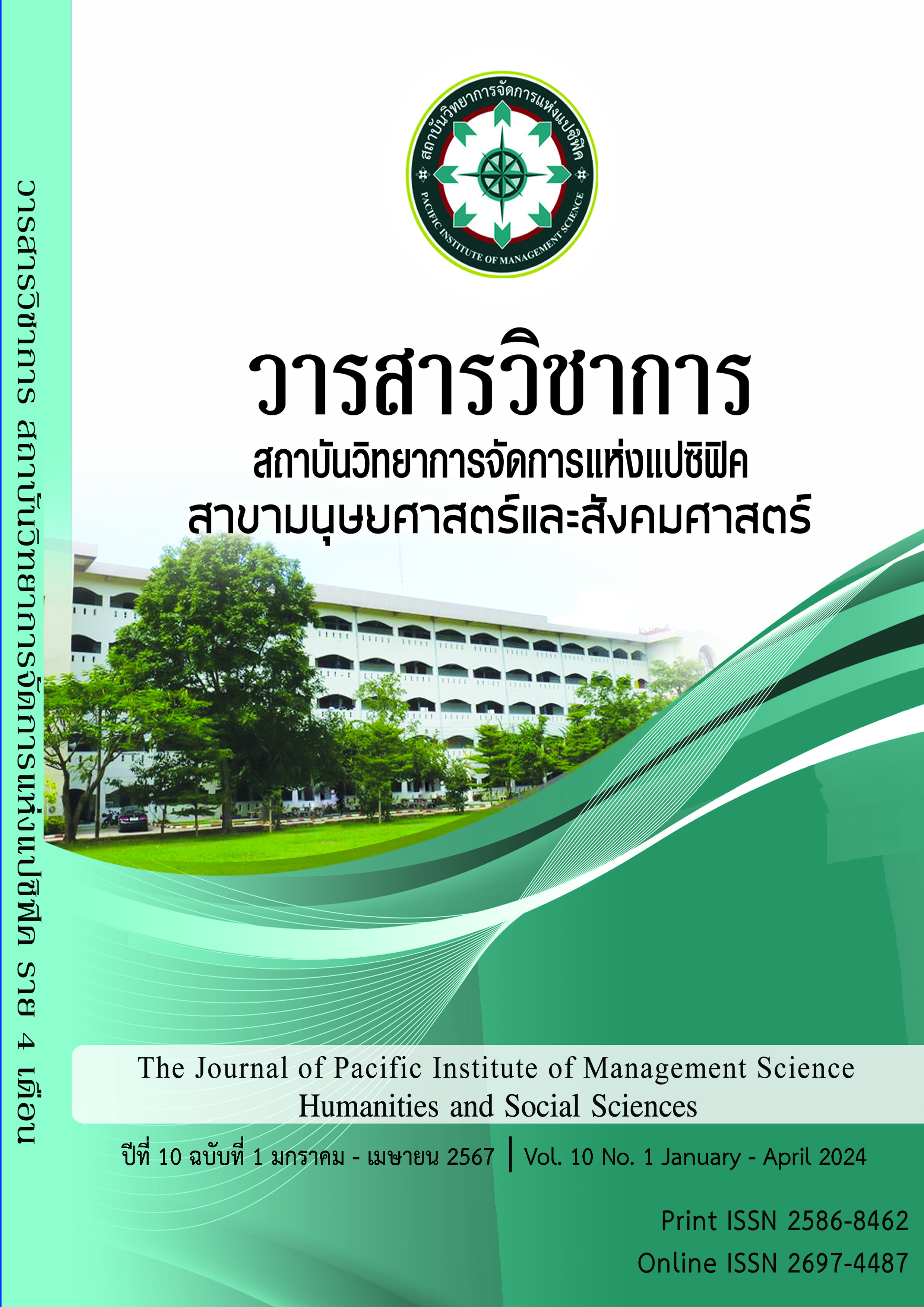Development of Educational Management through Participatory Action Research for Educational Management based on Sufficiency Economy Philosophy in Thaensilathipsuksa School under Khon Kaen Provincial Administrative Organization
Keywords:
The Development, Educational Management though participatory Action ResearchAbstract
The objectives of this research article are 1) to study the state of development of educational administration for teaching and learning according to the philosophy of sufficiency economy at Thaen Sila Thip Suksa School. Under the Khon Kaen Provincial Administrative Organization 2) To develop educational management using a participatory action research process, the PAOR cycle, for organizing teaching and learning according to the philosophy of Sufficiency Economy of Thaen Sila Thip Suksa School. Under the Khon Kaen Provincial Administrative Organization, there are 2 cycles, 8 steps, a group of 80 co-researchers and student parents. The Basic Education Commission consisted of 89 people. The tools used were questionnaires, interviews, and data were analyzed using descriptive statistics using frequency distribution, percentage, mean, and standard deviation.
The results of the research found that 1) Educational management for organizing teaching and learning according to the philosophy of Sufficiency Economy in 4 areas. It was found that in the area of conducting personnel development activities Teachers train themselves to be good examples for their fellow teachers and for their students to inspire them to want to do good things. Supervising students in a friendly manner By building morale for teachers There is reinforcement to create continuity in acting as a good role model for children. 2) Results of the development of educational management using the participatory action research process for teaching and learning according to the philosophy of the Sufficiency Economy. of Than Sila Thip Suksa School Under the Khon Kaen Provincial Administrative Organization, it was found that school administrators, teachers, parents, and basic school committees Opinions regarding the development of educational administration for teaching and learning according to the philosophy of Sufficiency Economy were at a moderate level.
References
บรรณานุกรม
ชาญชัยณรงค์ ทรงคาศรี. (2552). การพัฒนารูปแบบการเรียนรู้แบบมีส่วนร่วมในการดำเนินชีวิตตามปรัชญา
เศรษฐกิจพอเพียง โดยใช้หลักการทางสิ่งแวดล้อมศึกษา.วิทยานิพนธ์ ปร.ด. สิ่งแวดล้อมศึกษา
มหาวิทยาลัยมหาสารคาม.
บุญชม ศรีสะอาด. (2543). การวิจัยเบื้องต้น. พิมพ์ครั้งที่ 6. กรุงเทพฯ : สุวีริยาสาส์น.
ปรียานุช พิบูลสราวุธ. (2550). การขับเคลื่อนเศรษฐกิจพอเพียงด้านการศึกษา. กรุงเทพฯ : ศูนย์ประสานงานกลางการดำเนินงานโครงการอันเนื่องมาจากพระราชดำริสำนักงานปลัดกระทรวงศึกษาธิการ.
แผนพัฒนาเศรษฐกิจและสังคมแห่งชาติ ฉบับที่ 12 ( พ. ศ. 2560 – 2579 ). กรุงเทพฯ : สำนักนายกรัฐมนตรี.
แผนยุทธศาสตร์การพัฒนาองค์การบริหารส่วนจังหวัดขอนแก่น พ.ศ. 2560 – 2564. (2560). นโยบายด้านการจัดการศึกษา .ฝ่ายนโยบายและแผนกองแผนงานและงบประมาณ : องค์การบริหารส่วนจังหวัดขอนแก่น.
สุภางค์ จันทวานิช, (2533).วิธีการวิจัยเชิงคุณภาพ, กรุงเทพฯ : สำนักพิมพ์จุฬาลงกรณ์มหาวิทยาลัย, พิมพ์ครั้งที่ 2.
สำนักงานคณะกรรมการพัฒนาเศรษฐกิจและสังคมแห่งชาติ, (2560).รายงานประจำปี 2560 ขับเคลื่อนแผน 12 สู่เป้าหมายยุทธศาสตร์ชาติ
สำนักงานเลขาธิการสภาการศึกษา. (2560) แผนการศึกษาแห่งชาติ พ.ศ. 2560 – 2579.สำนักงานเลขาธิการสภา
การศึกษา.
สำนักงานตรวจราชการประจำเขตตรวจราชการ ที่ 7, สำนัก. (2550). การจัดการเรียนรู้ให้ไปตามหลักปรัชญา
เศรษฐกิจพอเพียงของโรงเรียน. กรุงเทพฯ : กระทรวงศึกษาธิการ.
Chris Peel, J & Ann, H.(1990) A study of factor contributing to achieving and sustaining
school ffectiveness in Elementary School. DAL 51/07A.
Kemmis., & McTaggart, R. (1997). Participatory Action Research: International Context and
Consequences. New York: State University of New York.
Downloads
Published
Issue
Section
License
Copyright (c) 2024 Pacific Institute of Management Science

This work is licensed under a Creative Commons Attribution-NonCommercial-NoDerivatives 4.0 International License.
บทความที่ได้รับการตีพิมพ์เป็นลิขสิทธิ์ของ สถาบันวิทยาการจัดการแห่งแปซิฟิค
ข้อความที่ปรากฏในบทความแต่ละเรื่องในวารสารวิชาการเล่มนี้เป็นความคิดเห็นส่วนตัวของผู้เขียนแต่ละท่านไม่เกี่ยวข้องกับสถาบันวิทยาการจัดการแห่งแปซิฟิค และคณาจารย์ท่านอื่นๆในสถาบันฯ แต่อย่างใด ความรับผิดชอบองค์ประกอบทั้งหมดของบทความแต่ละเรื่องเป็นของผู้เขียนแต่ละท่าน หากมีความผิดพลาดใดๆ ผู้เขียนแต่ละท่านจะรับผิดชอบบทความของตนเองแต่ผู้เดียว







